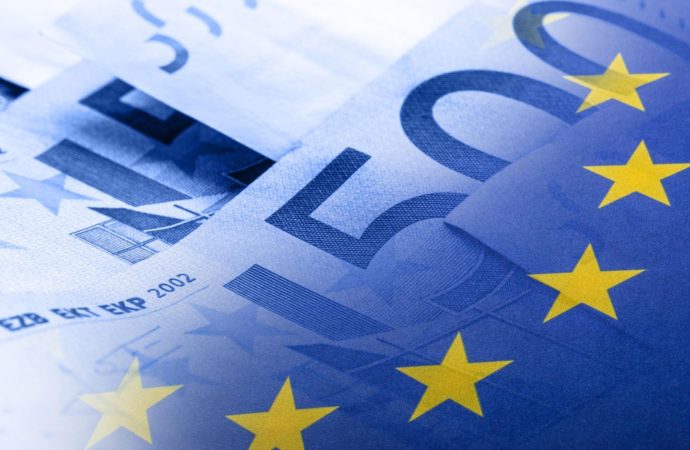The European Central Bank (ECB) plays a pivotal role in the eurozone’s economic landscape, influencing monetary policy, financial stability, and market dynamics. Following significant political events, such as national elections, the ECB often faces heightened scrutiny and speculation regarding its potential market interventions. One such instance is the speculation surrounding the ECB’s response to the
The European Central Bank (ECB) plays a pivotal role in the eurozone’s economic landscape, influencing monetary policy, financial stability, and market dynamics. Following significant political events, such as national elections, the ECB often faces heightened scrutiny and speculation regarding its potential market interventions. One such instance is the speculation surrounding the ECB’s response to the recent French elections. This article delves into the factors driving this speculation, the implications for financial markets, and an analysis of potential ECB strategies.
Background: The French Elections and Market Uncertainty

Photo by Karolina Grabowska: https://www.pexels.com/photo/crop-man-counting-dollar-banknotes-4386431/
The recent French elections have been a subject of intense interest and analysis across Europe and beyond. With France being a major player in the eurozone, the outcome of these elections holds substantial weight. The elections were marked by significant shifts in political dynamics and policy directions, leading to uncertainty in financial markets. As the political landscape evolves, investors and analysts are keenly observing how the ECB might respond to potential economic and financial instability that could arise from the election results.
Political Shifts and Economic Implications
The French elections resulted in a change in leadership and policy direction, with the new government proposing various reforms and changes that could impact the eurozone economy. These shifts include potential changes in fiscal policy, economic stimulus measures, and regulatory adjustments. The market’s reaction to these proposed changes has been one of cautious optimism mixed with uncertainty. The ECB’s role in stabilizing the market and ensuring economic stability becomes crucial in this context.
ECB’s Role and Mandate
The ECB’s primary mandate is to maintain price stability within the eurozone, which it achieves through monetary policy decisions, including interest rate adjustments and asset purchases. Additionally, the ECB is responsible for supporting the general economic policies of the European Union. The central bank’s actions are guided by its commitment to keeping inflation in check and supporting economic growth.
ECB’s Tools for Market Intervention
The ECB has several tools at its disposal for market intervention, including:
- Interest Rate Adjustments: By changing key interest rates, the ECB can influence borrowing costs, consumer spending, and investment.
- Quantitative Easing (QE): The ECB can purchase government and corporate bonds to inject liquidity into the financial system and lower long-term interest rates.
- Forward Guidance: The central bank provides communication about its future policy intentions to shape market expectations.
- Emergency Liquidity Assistance (ELA): In times of financial stress, the ECB can provide temporary liquidity support to banks facing short-term funding problems.
Speculation on ECB’s Response
Given the political changes in France, speculation about the ECB’s response has been rampant. Analysts and market participants are debating how the ECB might adjust its policies in light of the new political environment. Key areas of speculation include:
- Interest Rate Policy: Will the ECB adjust interest rates to counteract any economic uncertainty arising from the French elections?
- Asset Purchases: Might the ECB increase its asset purchases to stabilize financial markets and support economic growth?
- Communication Strategies: How will the ECB use forward guidance to manage market expectations and mitigate potential volatility?
Market Reactions and Implications
Financial markets have been reacting to the speculation with fluctuations in bond yields, currency values, and equity prices. The uncertainty surrounding the ECB’s potential actions has led to increased market volatility. Investors are closely watching the ECB’s statements and policy decisions for clues about the central bank’s strategy.
Comparative Analysis of Market Reactions
| Market Indicator | Pre-Election | Post-Election | ECB Speculation Impact |
|---|---|---|---|
| Bond Yields | Stable | Increased | Potential rise due to market uncertainty |
| Euro/USD Exchange Rate | Stable | Fluctuating | Volatility due to speculation on ECB intervention |
| Equity Markets | Upward Trend | Mixed | Volatility driven by potential changes in monetary policy |
ECB’s Possible Strategies
In response to the speculations, the ECB may adopt several strategies to manage market expectations and maintain stability:
- Reaffirming Policy Commitments: The ECB may reaffirm its commitment to its inflation targets and economic stability to reassure markets.
- Gradual Adjustments: To avoid shocking the markets, the ECB may opt for gradual adjustments in its policy stance rather than abrupt changes.
- Enhanced Communication: Clear and transparent communication about the ECB’s policy outlook and response to new developments can help manage market expectations and reduce volatility.
Analysis Table: Key Factors Influencing ECB Speculation
| Factor | Description | Potential Impact on ECB Strategy |
|---|---|---|
| French Election Outcome | Change in government and policy direction | Increased market uncertainty, potential policy adjustments |
| Market Volatility | Fluctuations in bond yields, currency, and equities | Potential for ECB intervention to stabilize markets |
| Economic Impact | Potential changes in fiscal and economic policies | ECB may adjust interest rates or asset purchases |
By examining these factors, we gain a clearer understanding of how the ECB might respond to the evolving situation and the implications for the eurozone’s economic stability.
Conclusion
The speculation surrounding the ECB’s potential market interventions following the French elections highlights the central bank’s crucial role in maintaining economic stability within the eurozone. As the political landscape in France evolves, the ECB’s responses will be closely scrutinized by investors and analysts alike. By carefully managing its monetary policy tools and communication strategies, the ECB can navigate the uncertainties and contribute to financial stability in the eurozone.
















